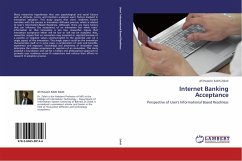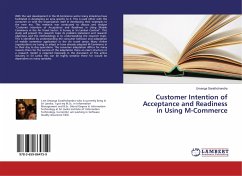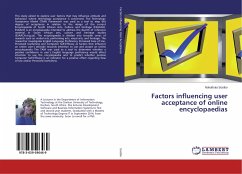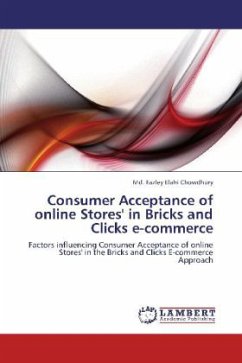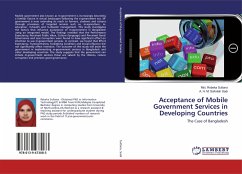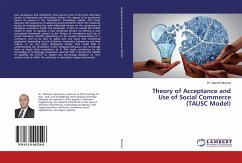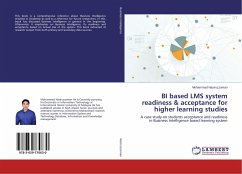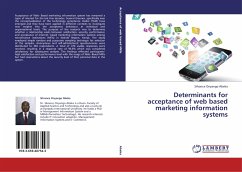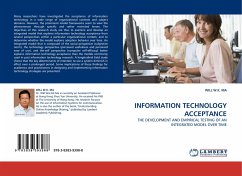
INFORMATION TECHNOLOGY ACCEPTANCE
THE DEVELOPMENT AND EMPIRICAL TESTING OF AN INTEGRATED MODEL OVER TIME
Versandkostenfrei!
Versandfertig in 6-10 Tagen
32,99 €
inkl. MwSt.

PAYBACK Punkte
16 °P sammeln!
Many researchers have investigated the acceptance of information technology in a wide range of organizational contexts and subject domains. However, the prominent model frameworks seem to view the phenomenon through specific and rather restricted lenses. The objectives of this research study are thus to examine and develop an integrated model that explains information technology acceptance from several perspectives within a particular organizational context, and to determine whether the model explains adoption behavior over time. An integrated model that is composed of the social perspective (...
Many researchers have investigated the acceptance of information technology in a wide range of organizational contexts and subject domains. However, the prominent model frameworks seem to view the phenomenon through specific and rather restricted lenses. The objectives of this research study are thus to examine and develop an integrated model that explains information technology acceptance from several perspectives within a particular organizational context, and to determine whether the model explains adoption behavior over time. An integrated model that is composed of the social perspective (subjective norm), the technology perspective (perceived usefulness and perceived ease of use), and the-self perspective (computer self-efficacy) better explains information technology acceptance than the models commonly used in past information technology research. A longitudinal field study shows that the key determinants of intention to use a system diminish in effect over a prolonged period. Some implications of these findings for academics and practitioners in designing and implementing information technology strategies are presented.



